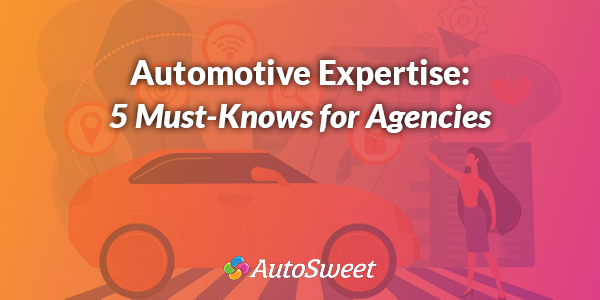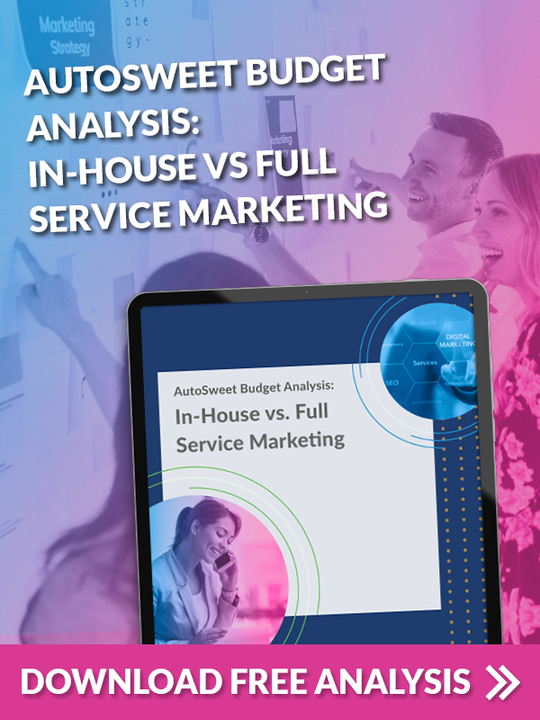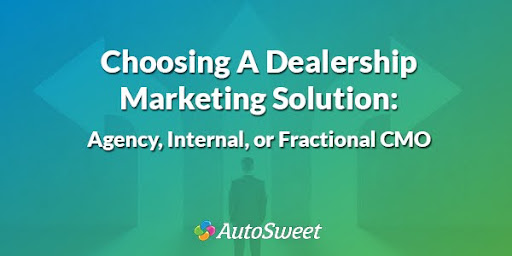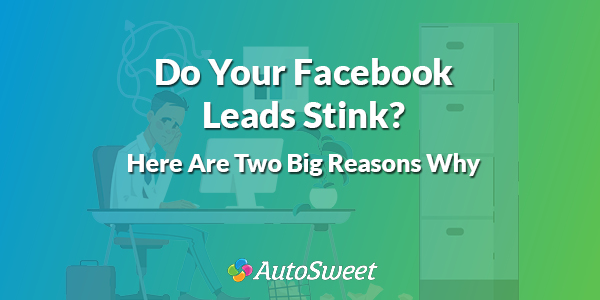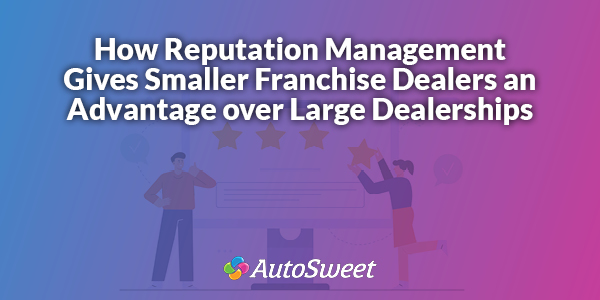Are you concerned that your agency doesn’t understand the complexities of the automotive industry?
Any vendor you work with has to understand your business to deliver solutions that actually work for you – especially your advertising or marketing agency. Without that insight, they’ll push generic services that miss the mark and waste your time.
In specialized industries like automotive, you need a partner who understands your business so you can avoid costly mistakes and drive real results.
Before you hire a marketing agency, make sure they have a solid understanding of these five aspects of automotive:
1. Dealership Terminology
The automotive industry has its own language; any agency you work with needs to be fluent in it. Terms like ‘net/net,’ ‘cost,’ ‘invoice pricing,’ and ‘holdback’ are not just dealer jargon—they’re the foundation of your business.
An agency unfamiliar with these terms can inadvertently create gaps in your advertising strategy, leading to miscommunication and lost opportunities.
Not to mention, you don’t want to have to spend billable hours with your agency teaching them the jargon of your industry.
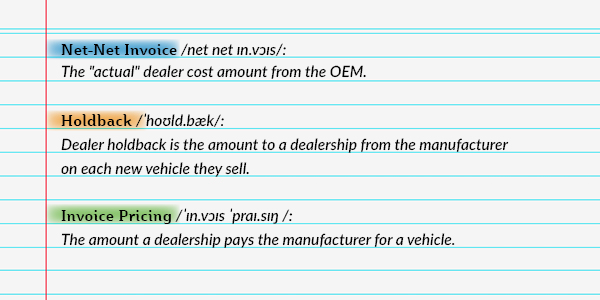
2. Dealership Platform Knowledge
Automotive dealerships rely on unique platforms to manage their operations, from CRMs and CMSs to Inventory Management Systems. Unlike their non-automotive counterparts, these platforms are specifically designed to meet the needs of dealerships.
For example, VINSolutions and dealer.com are tailored for automotive, whereas platforms like Hubspot and WordPress may not offer the specialized functionality required.
Your agency needs to know how to use these dealer-specific tools for seamless integration and effective marketing execution.
3. VDP/SRP Knowledge
The automotive industry is distinct in its approach to online sales. Websites are built like e-commerce platforms, showcasing individual Vehicle Detail Pages (VDPs) with detailed information about a specific vehicle.
Each VDP features photos, pricing, features, specs, and usually a call to action to inquire about the vehicle or set up a test drive. VDPs are key to converting online traffic into dealership visits and sales.
However, unlike typical e-commerce sites, customers can’t purchase these products directly online. This unique setup requires a deep understanding of how to guide customers through the marketing funnel, from deploying ads for key inventory to directing a customer to visit the VDP and spend time investigating the vehicle to visiting the dealership in person.
This is not like selling shoes online, it’s about understanding the unique customer journey in automotive marketing.
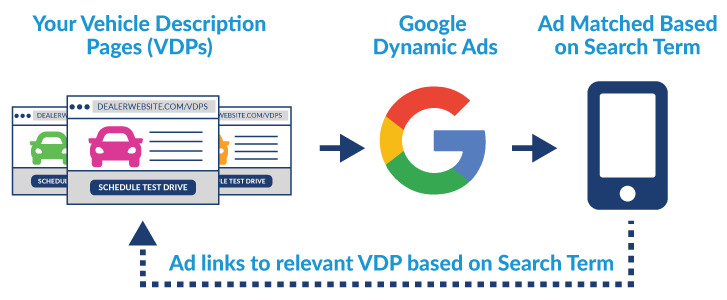
4. OEM Compliance
OEM compliance is vital to automotive marketing, especially when it comes to pre-approvals and co-op claims.
The pre-approval process with an OEM (original equipment manufacturer) requires dealerships to submit marketing materials for review to ensure they meet the OEM’s branding and compliance rules. Once approved, the dealership can use the materials and later claim co-op reimbursement.
In a co-op program, OEMs offer dealers reimbursements for advertising that follows their specific guidelines. However, securing co-op funds can be tedious, and an agency unfamiliar with the nuances of OEM rules can leave funds on the table, sinking your advertising budget.
A lack of understanding can lead to denied claims and missed reimbursements, especially in digital marketing where many OEMs push for strategies like Google Ads. Ensuring your agency knows how to navigate these guidelines can help you maximize your co-op dollars.
5. Disclaimer Knowledge
Automotive sales are regulated in several ways. Consumer protection laws require transparency in pricing, warranties, and disclosures about vehicle conditions. There are strict rules surrounding financing, from fair lending practices and disclosure of loan terms.
And of course, there are advertising regulations. Key details like financing terms, rebates, and the total cost of the vehicle must be clearly disclosed. If comparing vehicles to competitors in ads, the comparisons must be factual and verifiable.
But perhaps the most complex and critical advertising regulation is around disclaimers. Ads must comply with federal, state, and local laws, which can vary and change frequently. And manufacturers have their own strict rules for disclaimers to ensure consistency and protect their brand, adding layers of complexity.
Failure to comply with disclaimer regulations can lead to severe consequences, such as fines or loss of co-op funds, not to mention possible legal action! Your agency must know how to craft disclaimers that meet all legal and industry standards to avoid costly penalties.

Choose An Agency that Specializes in Automotive
The automotive sector is its own animal with special rules, jargon, and marketing techniques that are wildly different from other industries. Before you sign a contract with a new marketing agency, they must know your industry before they understand your business. Otherwise, their lack of insight can cost you opportunities, create compliance headaches, and deliver ineffective campaigns that miss your target audience completely.
Want to drive dealership success? Download our free guide, AutoSweet Budget Analysis: In-House vs. Full Service Marketing. In it you’ll find our comprehensive budget analysis of your three top marketing options: in-house, agency or full-service marketing services. (Also inside, you’ll find our special offer for 33% off full-service marketing services!)
Interested in speaking to an AutoSweet digital marketing professional about full-service marketing? Reach out to us today for a free demo!
